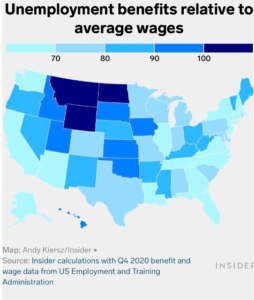A Win for Medical Freedom
SB 374 is a victory for competition and common sense.
“One down, five to go.” – Wall Street Journal Editorial Board
The Frontier Institute is proud to have played a role in helping Montana lawmakers deliver some major healthcare reforms that will help increase access and lower costs for all Montanans. Among them was SB 374, which Governor Gianforte officially signed last week – a move that earned praise from Montana doctors and even from the Wall Street Journal’s Editorial Board.
SB 374 follows the Frontier Institute’s recommendations to allow medical providers to dispense prescribed meds directly to patients. Prior to this bill, Montana was one of only five other states that prohibited doctors from dispensing the medicine they prescribe in most instances, requiring patients to make an additional trip to the pharmacy.
We’ve highlighted studies which show the option of physician dispensing can be more convenient for patients, making it easier for patients to keep up with prescriptions, which can lead to better health outcomes and savings on healthcare costs long-term.
There is also a potential for savings when physicians bypass the middlemen involved in complicated insurance billing to dispense medications for cash. By the time a drug is sold at a retail pharmacy the cost of a medication can have increased by up to 200 percent. Sometimes a patient’s insurance arrangement covers the cost of the prescription, but other times purchasing a drug for cash can be much cheaper than a patient’s insurance copay.
Savings can grow even larger when doctors dispense at-cost, as many of the Montana doctors who testified in favor of the bill want to do. This would mean providing medication for near-wholesale prices and skipping the markup a patient might find through a pharmacy.
In the words of the Editorial Board, signing SB 374 is a victory for competition and common sense.
For Liberty,
Kendall Cotton
. . .
The Latest
Affordable Housing
- The Bozeman City Commission took initial steps towards reducing building restrictions which they hope will boost housing development. The Commission voted to allow more concurrent construction and reduce zoning restrictions that limited the height of buildings.
“By providing an avenue to construct infrastructure and buildings at the same time, it may reduce the cost of interest to the developer, which may in turn make the homes or commercial spaces more affordable.” – Kelley Rischke, assistant city attorney
Our Take:
We’re glad to see the Bozeman Commission moving to break down these barriers to more affordable housing. Reducing regulatory barriers and changing building codes are reforms that cost taxpayers almost nothing to implement, yet can lead to incredible positive impacts for the community. Let’s encourage more of this from our local governments!
- An analysis published last week shows Montana as one of three states where UI benefit plus $300 federal supplement exceeds 100% of average wage.

Our Take:
As the economist Thomas Sowell observed, “You cannot subsidize irresponsibility and expect people to become more responsible.”
Taxpayers are being duped
- In a scorching op-ed, Rep. Brad Tschida laid blame for high property taxes squarely on the uncontrolled growth of local government spending:
“It’s imperative that you realize that the true cause of your rapidly increasing property tax burden is the excessive growth in city and county government.”
Our Take:
Rep. Tschida is spot on here. Excessive spending is what is driving property taxes higher, and it’s exceedingly clear that many local governments like Missoula have no intention to budget responsibly.
“During the past 20 years, and before, city and county governments haven’t made these facts known to property owners. If they were asked, they usually said something like, ‘Taxes are only increasing by the CPI and population growth.’ If that had been the case, city and county tax revenues would almost certainly be millions of dollars lower, leaving that money in your pocket. In other words, you’ve been duped by the elected members of city and county government, while they make the ability to live in Missoula County more and more unaffordable.”
